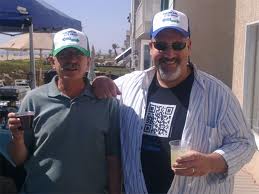How to be an Affiliate ‘Storyteller’ Marketer
Let’s face it, affiliate marketing has become highly competitive today. With more and more people jumping on to the Internet bandwagon, you need to be different to build an identity and have your own voice. Unless and until you stand out from the rest, you won’t make it to the top.
So the question that comes up here is – how do you go about being an affiliate marketer that thinks out of the box and is unique in his approach?
The answer is – by telling engaging stories:
While the majority are busy trying hard to sell to prospects – you seduce them. No matter how cheesy that sounds, it’s a fact that online marketers who know how to weave good stories win. They make more money, create a strong brand and build a rock solid business. Still not convinced? Let’s see how storytelling can work for you:
a) First and foremost, forget the common sales pitch tactics that you learned. People don’t want to be sold these days, they want to be recommended. Don’t get me wrong, hardcore selling still works. But when you focus on building relationships instead, you can turn tables around.
b) Persuasion is hot and there’s a good amount of marketing literature dedicated to it. However, there’s something that even triumphs persuasion, and that’s offering clarity and winning trust. When you tell an interesting story, you don’t push your prospects, but invite them towards getting more clear about their own goals, about their own dreams. And that sets you apart from the other affiliates.
c) There’s real power in connecting with your audience on a narrative level. It helps them get a ‘feel good factor’. It makes them listen to you and take action. If that’s not awesome, I don’t know what is.
d) Telling a story allows you to present a specific problem in a believable manner – before you even propose to solve it. You sort of make your prospects feel uneasy by discussing the problem they’re facing, and then offer them a solution to it.
Now let’s look into how you should approach storytelling to get those affiliates checks rolling:
1) A worthy story grabs the immediate attention of the readers. It uses lively phrases and words that paint a larger than life picture, something spectacular. If you want to get results with your story, don’t just scribble down the feature, go ahead and show them what it feels like with clear examples. Get them to actually imagine the benefits – and drool.
2) Your story needs to make sense emotionally and logically. And that can only be achieved when you think like your prospects. Get into their shoes and understand their problems – feel what they’re going through. When you do that, it becomes easy to write about what’s necessary or important to them. Also, try to keep it conversational. Write from the heart.
3) Finally, your story will obviously fail if you don’t get your prospects to take action. So be very clear about what you want from them. Don’t be shy asking them for the sale, because if you don’t ask, you don’t get.
As you progress, test your story line and craft it out in different ways.
Sometimes even the smallest tweaks can do wonders.
How is Internet Advertising Group (IAG Interactive) Still in Business?
It’s almost like an Internet advertising legend of sorts. There’s this story of this company out of Florida, called IAG Interactive that seems to go by a dozen or so different names. They are accused of scamming network out of network over and over again by providing fake or duplicated leads for EDU (Education) companies and then suing people when they don’t pay for the scams. When you hear the story the first time, or see a mention of it on Facebook or some forum, you have to think that the stories must be completely false, as they seem to weird to be true. How is this company still in business, if its true?
Dozens of network owners claim that they have been taken for thousand of dollars in EDU leads by this company that, if you are to believe the stories. Internet Advertising Group, known simply by IAG Interactive is owned by Michael E Weisoff, who is considered the mastermind behind the group of companies. If you run his name on Google, there are stories that describe the purported scam.
Whether or not the stories are true, is up to the reader to decide. There is enough information on the net to do your own research on them and the businesses they go under. However, the real question is how does this company continue to do business, if they are indeed this huge underground fraud ring, as some claim?
I think there are two main reasons for this, and the reasons question the very basis of some of the CPA networks and companies in our industry.
The first reason is simple: Some people just don’t have any fraud protection out there and accept anyone as an affiliate. Without having a fraud protection system on their network, there is basically nothing they can do proactively to prevent fraud. Fraud will continue to happen on their network, and they have basically accepted it as part of the business. Brian McLevis, of ScrubKit told me that they catch EDU fraud on a regular basis of this type. “Education fraud is a common occurrence in the industry,” said McLevis. ” Thankfully if you have a robust fraud management system like ScrubKit this type of fraud is easily detected.”
Read that part again, it’s EASILY detected.
The second reason is probably more nefarious and is ignored way too much by the industry. There are dozens of networks on the fringe of the industry that don’t care about fraud and actively accept fraud into their network. We’re not talking about those networks that allow their affiliates to spam Facebook, or scam people out on Cragislist, but instead networks those actively seek and work with scammers to defraud other networks.
These networks must know they are working with EDU scammers and they must know that they have affiliates that are driving fraudulent leads and they just don’t care. Advertisers wouldn’t work with them, right? In most cases would be correct, but that’s where the problem becomes worse.
These networks often work with other networks, what I would call second tier networks that aren’t actively accepting fraud, but are the networks that don’t have any fraud protection. These guys take in these other small networks, that are active fraudsters, and since they are often mixing the leads with good leads, the bad stuff goes under the radar of the advertiser. In fact, they are often also brokering from a larger network, and when mixed and brokered three times, sometimes the bad leads account for less than 1% and are never noticed.
I can run offer searches on OfferInspector for several well-known fraud networks, and continually find the offers being brokered from other networks. These are networks that everyone has said is heavily involved in fraud (check out these reviews) and has been terminated from every network. Still, how do they get the offers?
We must start being honest here about what is going on in the industry and how some companies are enabling fraud to continue to exist. There is no other way that companies that are involved with fraud, that are known to push fraud would continue to do business when there are more than a few groups that expose these scams and everyone knows everyone else in our industry. There is no reason whatsoever any company that is actively engaged in fraud should still be doing business. If it is still doing business, it’s because there are still people who pretend to be our friends, our colleagues that are still working with them and helping them to continue to hurt your company, your business and your affiliates.
QR Codes Might Be Proven Useless
It seems that more and more people are talking whether or not QR codes are useful. As some people pointed out, QR codes pretty much drive nothing to anyone. Well, in order to test this there is an experiment in Reading, England that will decide what the English think of QR Codes. In fact, according to these guys, QR Codes will retire completely this year,
Outdoor media owner JCDecaux and media firm Kinetic have installed 325 posters all over the area, near Heathrow Airport to see if the technologies work and actually engage consumers.
During the trial, 12 brands–Test the Near Future, are EA Games, H&M, ITV2, Lucozade Sport, Lynx, Magnum, Mercedes, Morrisons, Toni&Guy, Universal DVD, Universal Special Projects, and Vaseline–will take turns to providing content for consumers to download using NFC contactless technology, or via a QR app if their handset does not support NFC.
Hopefully some real number will come out of this, and find what many people are already know, that no one really does care about snapping photos of pictures to get to a website. Still, will be an interesting study. However, it will only show what people driving while traveling to Heathrow which might not be much of a study in itself.
Beta Test of New Affiliate AffClicks Platform Announced
AffClicks has recently announced the official launch of a public beta of their web analytics app. AffClicks will perform several functions for professional affiliate marketers such as network commission aggregation; PPC bid management, ROI analysis and search phrase analytics.
Unlike other analytics tools that focus on traffic metrics, AffClicks is a profitability analysis tool, that downloads cost data from you PPC ad campaigns at regular, user-defined intervals and analyses the cost data from the overall campaign level through to the keyword phrase level. The platform then compares all data against commission data downloaded and aggregated from AffClicks’ many supported affiliate networks, which include Affiliate Window, Commission Junction, Webgains, TradeDoubler, Paid On Results, Affiliate Future, Zanox, Buy.At, AdTraction, LinkShare, Commission Monster and ClixGalore.
AffClicks is also integrated into Google’s Adwords platform and will be integrated into Microsoft’s PPC service, Adcenter, in the second quarter of 2012. In addition to the standard PPCcampaign management functions,the AffClicks interface contains several additional features and that are affiliate-friendly, including the ability to sort keywords, campaigns and adgroups by net profit or loss.
AffClicks users can raise or lower their keyword bids in real time, setting their levels according to the profitability of each individual keyword or delete them altogether if they are making losses. Users can quickly determine which aspects of their campaigns are cash cows – and which are loss-making or profit neutral – and adjust their keyword lists and PPC budgets accordingly.
Last, but not least, AffClicks can be also used for SEO purposes, to determine which search terms are turning a profit so you can focus your SEO effort on the pages/products that are converting well.
Must Attend: FTC Disclosures Workshop for Online Marketers
The Federal Trade Commission will host a day-long public workshop to consider the need for new guidance for online advertisers about making disclosures required under FTC law. The guidance will address technological advancements and marketing developments that have emerged since the FTC first issued its online advertising disclosure guidelines known as “Dot Com Disclosures” 12 years ago.
The workshop, to be held on May 30, will cover revising the Dot Com Disclosures so they illustrate how to provide clear and conspicuous disclosures in the current online and mobile advertising environment. Any revisions will be consistent with the goals of the original guidelines and will continue to emphasize that consumer protection laws apply equally to online and mobile marketers, and to other media. The FTC began seeking input for revising the Dot Com Disclosures guidelines last year.
Topics may include:
- How can effective disclosures be made on social media platforms and mobile devices – including when they are used in commercial texting – that limit the space available for disclosure? For example, when consumers are paid or receive other benefits for providing an endorsement, how can they effectively disclose on platforms that allow only short messages or a simple sign of approval?
- When can disclosures provided separately from an initial advertisement be considered adequate? For example, if a consumer receives a location-based ad for a discounted cup of coffee on her mobile device because she is near a particular coffee shop, what terms must be disclosed in the mobile ad and what terms, if any, do not have to be disclosed until the consumer enters the coffee shop to make her purchase?
- What are the options when using devices that do not allow downloading or printing the terms of an agreement? For example, is providing consumers a means to send a copy of the agreement to themselves to read later an effective way to provide this information?
- How can disclosures that are made in the original advertisement be retained when the advertisement is aggregated (for example, on dashboards) or re-transmitted (through, for example, re-tweeting)?
- What are the disclosure opportunities and limitations of hyperlinks, jump links, hashtags, click-throughs, layered disclosures, icons, and other similar options? How should these options be evaluated in terms of placement and proximity?
- How can short, effective, and accessible privacy disclosures be made on mobile devices?
- What does the research show about how consumers’ use of mobile and other devices can affect the effectiveness of disclosures on particular devices or platforms? And what does it show about the relationship between how consumers use mobile devices and their understanding of disclosures and advertising displayed on mobile devices? What does the research show about how consumers make decisions based on that information? Is there specific research on the effectiveness of disclosures on mobile devices, including layered disclosures and icons, and, if so, what are the implications of that research for disclosures such as offer terms and privacy practices?
The Commission also invites parties to submit suggestions for topics of discussion or original research. In particular, the Commission invites the submission of realistic examples and mock-ups that can be used for illustration and discussion at the workshop. Individuals and organizations may submit requests to participate as panelists and may recommend topics for inclusion on the agenda. The requests and recommendations should be submitted electronically to dotcomdisclosuresworkshop@ftc.gov. Prospective panelists should submit a statement detailing their expertise on the issues to be addressed and contact information no later than March 30, 2012. Panelists will be selected based on expertise and the need to include a broad range of views.
Paper submissions should reference the Dot Com Disclosures Workshop both in the text and on the envelope, and should be mailed or delivered to: Federal Trade Commission, Office of the Secretary, Room H-135 (Annex P), 600 Pennsylvania Avenue, N.W., Washington, DC 20580. The FTC requests that any paper submissions be sent by courier or overnight service, if possible, because postal mail in the Washington area and at the Commission is subject to delay due to heightened security precautions. The workshop is free and open to the public. It will be held on Wednesday, May 30, 2012, at the FTC Conference Center at 601 New Jersey Avenue, N.W., Washington, DC. Pre-registration is not required. Members of the public and press who wish to participate but who cannot attend can view a live Webcast at FTC.gov.
Reasonable accommodations for people with disabilities are available upon request. Requests should be submitted via e-mail to cmcglothlin@ftc.gov or by calling Carrie McGlothlin at 202-326-3388. Requests should be made in advance. Please include a detailed description of the accommodation needed, and provide contact information.
The Federal Trade Commission works for consumers to prevent fraudulent, deceptive, and unfair business practices and to provide information to help spot, stop, and avoid them. To file a complaint in English or Spanish, visit the FTC’s online Complaint Assistant or call 1-877-FTC-HELP (1-877-382-4357). The FTC enters complaints into Consumer Sentinel, a secure, online database available to more than 2,000 civil and criminal law enforcement agencies in the U.S. and abroad. The FTC=s website provides free information on a variety of consumer topics. Like the FTC on Facebook and follow us on Twitter.
Eli Aloisi Gets High
If you’ve been awake this past year, you can’t help pay attention to Eli Aloisi. Originally a super-affiliate and popular blogger, he recently opened AboveAllOffers, a CPA Affiliate Network based out of Oregon, that pushes itself as being a totally different type of network, with a totally different type of staff. If you have the opportunity to talk to Aloisi, and actually get his attention, you’ll realize that things are done very, very differently over there and it works. He’s a self-admitted ADHD kid, who has used that to develop tons of relationships in the industry and invade Facebook. We sat down with him this past weekend and asked him what he was doing differently, and more importantly, what special technology he uses for his graphics.
How did you originally get started in this industry?
I started when I was 15 (1995). I found a chatroom with a bunch of colocation and server providers who did internet marketing. I thought it was awesome and stuck around. They were kind enough to teach me a few things and I started building sites around interests of mine. From there I got into SEO and somewhere around summer of 1996 I made my first real money and started doing very well. Starting out was a real adventure for me. Making money online wasn’t real mainstream or well understood back then. So it was a ton of fun getting to explore opportunities and paving my own path.
When you were an affiliate, what bothered you most about some networks?
I still consider myself an affiliate and the affiliate in me will never die no matter what jobs and roles I take on. I’ve always worked with a really wide variety of networks and honestly I’m very much an optimist. So I never looked at networks through eyes focused on their negatives. Every network has it’s distinct advantages and I used those advantages to get the most out of every project and campaign. When you’ve been in the industry any amount of time it’s inevitable that, like me, you’ll run across a few dishonest networks. I think those are the ones that bothered me the absolute most. When you’re in a tech industry with some of the brightest minds and unrestricted access to information there is no reason or logic to ever be dishonest.
You are known to have amazing affiliate managers, what makes them so good?
Thank you. The helpfulness of my affiliate managers is probably the most common compliment I get and I love hearing it every time. I’m a firm believer in cross training and the amount of training one of my new affiliate manager’s has to go through depends on their previous industry experience. Either way I am very patient in making sure they get everything they need to perform including extensive training under myself. I’m comforted knowing that all of my AMS are always giving the affiliates the exact same advice I would give.
What is important about having a slew of creative? Why do you think many networks don’t provide creative support and what have you learned from that?
Thank you for noticing we do that! Above All Offers currently has around 21,067 creatives and growing. All of which are optimized, well sorted, titled/named, and download-able. That’s not an easy or cheap accomplishment, but I feel it fills a very important aspect of how a network should be earning their margins. When we are getting paid to provide affiliates everything they will need to make their campaigns successful, I like to do exactly that even if certain details seem a bit frivolous.
Affiliates have been talking about your payment system, what is special about it? Is this something that needs to be an industry standard?
It’s pretty great to see a payment system actually get it’s own buzz. The problem is, it’s a hard sell to people who haven’t experienced their first AboveAllOffers payment. A payment system is a payment system right? Nothing really special can be said about ACH/Wire/Check/Paypal or uniqueness beyond that. That’s not exactly true, since the internet has become such a popular form of business there has been a lot of advancements in enterprise level payment systems in the last 5-10 years. The problem is most networks in the industry that have been in business for 5+ years are still using those systems that are even older and aren’t able or willing to change to the new technologies. A lot can be said for every optimizing every step between the batch creation of a few thousand payments, client side notifications, the speed of the transaction, and most importantly the clearing of that transaction on the other side; As well as receiver and sender fees being avoided. That said, AboveAllOffers is literally the pride and joy of our bank and they use our to sell to their largest clients. We in turn get to hear a lot of shock and awe comments every week from our affiliates. I’ll also be upfront and open about our payment costs. We pay $45/month to send/receive unlimited ACH and wires. Of which each ACH only costs us $0.10, and every wire costs us only $0.15. That’s a lot better than the $30+ for each most other networks have to pass the costs on to their affiliates. So to answer your question, yes it definitely should become an industry standard.
What is special about your tracking systems?
We use Cake for our platform. They are a newer platform that’s been making a lot of waves this last year. We were one of the first to use them and after demoing and strongly researching every other platform out there I can see why Cake has become so popular. I’m definitely a fanboy.
What is your current opinion of the Blackhat debate? Is there any room for mischief in this industry?
As the author of the former BlueHatSEO.com for many years I’ve been pretty vocal about the different SEO tactics. I think black hat is exactly that, a SEO tactic. I’ve never seen it as a moral thing, I’ve seen it as a business strategy. Each business strategy has its upsides and downsides. After all these years we still hear the whole counter argument of “but what about the Google?” and I still have to stick by one of my old quotes that is still circulating around today, “The day Google starts giving a damn about my business is the day I start caring about theirs.”
What do you think the FTC’s crack down and whom do you think they will, or more importantly should go after?
The FTC is just doing their job as unpopular as that job is. We networks and affiliates just have to do ours as well.
Is there any other network that you like the way that they run and why?
Absolutely, I’m a huge fan of quite a few networks. Probably more than I can possibly list here unfortunately, but I’ll try to get at least a few.
Ads4Dough– In my opinion honesty and helpfulness are the two best factors a network can be known for. Jason and Ads4Dough embody that perfectly. Reputations aren’t built easily and while I’m stoked that AboveAllOffers has an honest and helpful reputation like Ads4Dough, the real test will be to make sure we can keep it for as long as Ads4Dough has. That’s what I strive for every day.
EWA– Some love flashy, some hate it. Either way Ryan Eagle runs a super clean ship over there. I don’t think there is a more hard working network manager in the industry than him. EWA became huge for a reason, Ryan’s work ethic and attention to detail. Since I am a network manager Ryan is my role model on work ethic. If I can keep my details on lock and work slightly harder than him every day there’s no doubt in my mind my company will someday be the biggest.
Do you think that having more CPA networks hurts or helps the industry? How would you recommend that people stay away from bad networks.
Sure more the merrier! More competition keeps everyone honest. Lets face facts. There has always been plenty of cheating and scamming going on with networks. All these new networks coming out is just shining light on all that. You have all these top guys getting caught and falling, all these bottom feeder networks trying to catch a few fraud scraps. Other than sympathy for the innocent victims none of their failures or cheating bothers me. I just keep my chin down and shoulder check them as I run by. AboveAllOffers is the fastest growing network for a reason. We concern ourselves with our clients not drama.
 If you could pitch Pixar to work with you, what would you do? Describe the pitch and what you’d push them to do.
If you could pitch Pixar to work with you, what would you do? Describe the pitch and what you’d push them to do.
I would convince them to do a 3D movie in MSPaint 🙂 And my visual aids would be very convincing as always!
What is your dream car?
Jaguar XJ-220
’67ish Shelby Cobra of course
False Headers Violate California Law Says Court
On February 24, 2012 in the matter of Balsam v. Trancos, Inc., the California Court of Appeal held that: (1) commercial e-mail header information that uses a sender domain name that neither identifies the actual sender on its face, nor is readily traceable to the sender, constitutes misrepresentation in violation of California’s Anti-Spam Act; and (2) the federal CAN-SPAM Act’s preemption clause did not bar application of the California statute.
In short, California’s Anti-Spam statute (Cal. Bus. & Prof. Code § 17529.5) makes it unlawful to send commercial e-mail advertisements containing or accompanied by “falsified, misrepresented, or forged header information.” However, the act fails to define “header information.” In 2010 the California Supreme Court decided to use the federal definition from the CAN-SPAM Act (Kleffman v. Vonage Holdings Corp.).
The CAN-SPAM Act defines “header information” as “the source, destination, and routing information attached to an electronic mail message, including the originating domain name and originating electronic mail address, and any other information that appears in the line identifying, or purporting to identify, a person initiating the message.” Kleffman simply held that a commercial e-mailer is not misrepresenting its identity when it uses multiple, randomly-named but accurate and traceable domain names, in order to avoid spam filters.
The trial court in Balsam v. Trancos, Inc. decided that a number of e-mail advertisements that the defendant sent to the plaintiff violated Section 17529(a)(2) by containing header information for nonexistent or misrepresented senders. The defendant appealed, first citing Kleffman and then arguing that the federal CAN-SPAM Act preempts the state law absent a finding of fraud.
The California Court of Appeal rejected both arguments.
In Kleffman, the plaintiff alleged that Vonage violated Cal. Bus. & Prof. Code § 17529 for sending commercial advertisements to him from multiple domain names with fanciful or nonsensical names in an effort to get around his spam filter. However, although the domain names were peculiar, they all existed, were accurate, and were traceable to Vonage. The court held that silence about the sender’s identity is not the same as misrepresenting it. Therefore, the California Supreme Court ruled that the emails “neither contained nor were accompanied by ‘falsified … or forged header information’ within the meaning of Cal Bus. & Prof. Code § 17529.5(a)(2).”
The California Supreme Court in Kleffman also distinguished between an act of “misrepresenting,” and that of “misleading,” stating that the California law did not prohibit “misleading” and that the legislature intentionally drafted the statute that way because if the law covered “misleading” header information it would have been preempted by the CAN-SPAM Act.
Thus, the Kleffman court concluded that a single e-mail with an accurate and traceable domain name neither contains nor is accompanied by “misrepresented header information” within the meaning of Cal Bus. & Prof. Code § 17529.5(a)(2) merely because its domain name is random and nonsensical when viewed in conjunction with domain names used in other e-mails.”
Here, the California Court of Appeal distinguished Kleffman, explaining that “[p]roperly construed, Kleffman simply held a commercial e-mailer is not misrepresenting its identity when it uses multiple, randomly-named, but accurate and traceable domain names, in order to avoid spam filters.” The court said that, unlike Kleffman, the defendant’s motivation here was to elude identification by the recipients, rather than to merely fool spam filters. Here, the domain names were not traceable to the actual sender and the header information was “falsified” or “misrepresented” because Trancos deliberately created it to prevent the recipient from identifying the actual sender.
Trancos also argued that the CAN-SPAM Act preempts application of the California statute because the plaintiff failed to prove common law fraud – “falsity or deception” of the e-mails. CAN-SPAM preempts state rules and regulations that expressly regulate commercial e-mail, except to the extent the state statute prohibits “falsity or deception.” This issue has been the subject of much litigation and judicial splits over the scope of the federal preemption provision.
Some courts have held that all elements of common law fraud must be established to avoid application of the preemption clause. Others, such as Hypertouch, Inc. v. ValueClick, Inc., have held that the CAN-SPAM Act’s savings clause limiting preemption applies to any state law that prohibits material falsity or material deception in a commercial e-mail, regardless of a plaintiff’s ability to prove every element of common law fraud.
In Balsam v. Trancos, Inc., the court followed the Hypertouch decision. The court decided that “falsity or deception” means an element of wrongfulness and not full common law fraud. It held that the defendant’s acts of concealment involved “deception as to a material matter – the sender’s identity – as well as an element of wrongful conduct.”
This holding by the California Court of Appeal adds to the patchwork of inconsistent judicial decisions regarding the scope of CAN-SPAM Act preemption and potentially exposes online marketers to a wider net of state anti-spam actions.
Zynga Leaving Facebook
While Zynga is known as a Facebook success story, it seems that they have decided to start to pull away from being a Facebook application. While it will be possible to continue to play Zynga games on Facebook, Zynga has decided to focus its business mainly on their new Zynga.com.
Zynga.com is designed to make it easier for you to play with friends. We’re excited to offer new features like the live Social Stream which will enable you to play in real time with your friends and find new ones. Player profiles will let you check your friends’ helpfulness score to see who’s most likely to help you back. And you’ll be able to chat and play live with your friends and a community of players interested in the same games as you.At Zynga, our first value is to build games our friends and family love to play. And when we launch a new product or game, for us it’s like Christmas day with the chance to surprise and delight millions of you.
One of the reasons that they are going to try to push play on their site, is to move away from the every so growing restrictions for advertisers on Facebook. This will provide marketers a new place to try new techniques and work outside the Facebook platform.
Another interesting part about this announcement is that this will basically create a new platform that will compete with Facebook. People have often pointed out that many Facebook users are social users, while some are completely engrossed in the games, making for a different audience. This will basically create a new social network which is completely focused on casual gamers, and in theory a load of women who love harvesting fake wheat. This in itself is a huge plus for advertisers.
10 Great Women of CPA Affiliate Marketing
Last week we had a highly publicized article about 10 Women of Affiliate Marketing, and a lot of people came back to me asking to add other women. The purpose of this series is to help promote positive images of women in our industry, especially when our industry unfortunately sometimes pushes negative images. Additionally, there is a fiction that women are not prominent in the industry, when the fact is many, many women are the heads of companies, the one making the decisions and drive more revenue than any dude.
Here are 10 more amazing women in the industry, focused on making money on the CPA Affiliate Space. Again, there is no reason to the order whatsoever.
 Abby Whitridge, Co-Founder w4
Abby Whitridge, Co-Founder w4
http://www.linkedin.com/pub/abby-whitridge/8/46b/800
http://www.w4.com
If you don’t know Abby, you don’t know CPA Marketing! She’s one of the first employees of Hydra and was an essential part of their team. When the Walker clan started their new company in 2009, they knew they must bring her on board and make her a partner.
 Samantha Murphy, Founder of Marathon Ads
Samantha Murphy, Founder of Marathon Ads
http://www.marathon-ads.com/
http://www.linkedin.com/in/samimurphy
Has been in the industry for as long as I can remember, but only recently started her own company, MarathonAds. She’s one of those old-timers in the industry that everyone knows and respects.
 Casey Cummings, VP at CrushAds
Casey Cummings, VP at CrushAds
http://www.linkedin.com/in/4caseycummings
http://www.crushads.com
Casey is one of the founders of the affiliate industry in South Florida. If you want to do business in South Florida, she’s the gateway to everything, acting as a defacto Godfather, ergh, Godmother of the CPA industry. She’s one of the OGs and gets our respect. (Although I think the first time I spoke to her on the phone I insulted her. Sorry!)
 Arikka Greene, Social Media Maven & Expert
Arikka Greene, Social Media Maven & Expert
http://fr.linkedin.com/in/arikka
Arikka is the former head of global sales at MegaUpload but more importantly, the lady behind half a dozen very influential Facebook groups. She currently is living the good life in the South of France, but is rumored to have at least two-dozen companies courting her for C-Level positions around the world. She’s definitely in the know!
 Amanda Currie, Founder Frontline Direct, SVP Adconion
Amanda Currie, Founder Frontline Direct, SVP Adconion
http://www.linkedin.com/in/amandacurrie
http://frontlinedirect.com/
Founded one of the top database management companies in the world, she helped change the face of email marketing. With over 100M records, it’s one of the top real targeted, non-spam marketing companies out there. She’s one of the main reasons for it’s success.
 Stacey Sicard, President of REG Performance Network
Stacey Sicard, President of REG Performance Network
http://www.linkedin.com/in/staceysicard
http://www.revenuegrp.com
Stacey another one of those old-timers who has been doing this forever. She started her career in 1998, with the legendary marketing company YouWinIt.com. Before there was really a CPA marketing industry, she was making the industry. Since then she’s helped create and develop half a dozen other companies in the industry.
 Jill Fletcher, COO Adperio
Jill Fletcher, COO Adperio
http://www.linkedin.com/pub/jill-fletcher/0/aa2/634
http://www.adperio.com
Jill is one of the original executives at Adperio FKA Memolink. They are the original incentive based point company in the industry. As Adperio, they are the premiere incentivize based agency in the US, with major clients including NetFlix.
 Laura Belzer, CEO of Abacus Enterprises
Laura Belzer, CEO of Abacus Enterprises
http://www.abacusaffiliates.net/
http://www.linkedin.com/in/laurabelzer
Abacus is a well-known boutique network focused on hosted co-reg and lead generation campaigns. Almost all of them are unique, ones you will not find anywhere else. She’s owned this staple in the industry since 2002 and has made a name for herself for the last 10 years.
 Holly Brown, CEO of Wheaten & Wheaten
Holly Brown, CEO of Wheaten & Wheaten
http://www.linkedin.com/in/hollybrown
http://adfoundry.com/
Also one of the original gals (OG) in the industry, Holly founded Wheaten & Wheaten as one of the premiere performance marketing agencies. They also operate their own affiliate network at AdFoundry which promoted their own in house offers and a bunch of other well known brands.
 Amy Sheridan, CEO of BluePhoenix Media
Amy Sheridan, CEO of BluePhoenix Media
http://www.linkedin.com/in/amysheridan
http://www.bluephoenixmedia.com/
I’ve known Amy since I called her out in my original publication ADBUmb in 2000 or so. Actually, before that she was actually one of my first sales people, and I bought media from her at MusicVision, her first company in the industry. She’s opinionated, strong and definitely someone who makes it known she doesn’t take any BS.
 Danielle Raybuck, Partner Weekly
Danielle Raybuck, Partner Weekly
http://www.linkedin.com/in/danielleraybuck
http://www.partnerweekly.com/
What can you say about Danielle that not everyone already knows. She’s specialized the art of networking on Facebook and is one of the most liked, most personable women in the industry. Plus, she’s going to be my neighbor soon, so I had to add her out of fear that if I didn’t I’d have my house TP’ed.
Ladies, Strike a Pose and Join Missy Ward’s Newest Venture, Women of Online Marketing United.
A New Forum Dedicated to Women in the Industry.
Exclusive Interview: MegaUpload Executive Talks
I’ve been fortunate to have known Arikka Greene for a while and have a lot of great conversations with her about the industry, life in general and more importantly what’s good to eat in France. She’s a charming, delightful young lady who definitely knows her stuff. When she told me she was taking a job with MegaUpload last year running their Global Sales Division, I thought nothing of it. They were at the time getting a huge amount of press, celebrities were talking about what a great company it was, and it sounded like a great company to work for. When they were shutdown and the founders arrested in January, it came as a shock to everyone including Arikka. She was nice enough to agree to sit down with Performance Marketing Insider and tell us a bit about the company and what going on. What you’ll hear is a story of a global company, professionally run with major brands and companies attaching itself to it. Nothing whatsoever like underground Pirate Enterprise that has been portrayed by the movie studios and the government.
Tell us a little about your background, where you worked before.
My background is in online lead generation. I have been working in new media space almost 8 years now. My goal is to become knowledgeable in every form of online marketing. Some specialties before working at Mega were email marketing, coregistration, online education, international lead generation and social media. I began my career in display when I started working for Megaupload.
How did you get the job at MegaUpload? What exactly was your position at MegaUpload, and what did you handle?
I was courted by Megaupload for quite sometime before I finally agreed to sign on. I was connected on Linkedin with the CMO, which is how we were acquainted. At the time, I was working for a French affiliate network in Cannes and completely uninterested in leaving. However, the CMO, Finn Batato, was, and still is, the most persistent and persuasive man I’ve ever encountered. He convinced me that Mega would be the best career move for me. In many ways, I believe it was. My position was “Global Sales Development Manager.” I was in charge of selling premium ad space on Megaupload.com and Megavideo.com (2 top rated websites with over 4 billion page views per month) to advertisers and media buyers. Since my territory was global, part of my job was to travel to international conferences and events to meet with clients, form strategic advertising alliances and figure out how to get the best ROI on advertiser media buys.
Who were some major advertisers and brands that advertised on MegaUpload?
Mega’s advertising clients varied across a lot of different categories. Common niches were casual games, gambling, Entertainment and dating. We also worked with many brands through agencies like AEGIS and Vizeum. I would rather not reveal actual brand names in case they wish to remain anonymous to avoid any drama.
Honestly, what was it like working for MegaUpload on a day-to-day basis?
It was a blast. The Mega team was, and still is, extremely close-knit. We are scattered all over the globe (Argentina, UK, Japan, Hong Kong, US, France, Germany, Estonia, Philippines, etc.) Every time we’d get together for a trade-show, it was almost like we were family. Most people don’t realize that Megaupload was comprised of a very small team. It was a great place to work because everyone was excited about his or her job and believed in the product and service Mega provided. The mantra was “work hard, play hard.” I personally had some of the best experiences of my life working with Megaupload. They really knew how to treat employees.
What do you personally think of the accusations, did you have any reason to believe that they were involved in pushing illegal copyrighted material?
Personally, I was shocked by raid and arrests in January. I was only responsible for selling the advertising, so I didn’t understand all the inner-workings of the company. However, I had absolutely NO reason to believe anything illegal was going on. Furthermore, I don’t believe Megaupload was involved in any kind of conspiracy like the US Department of Justice claims. I say this because I have multiple emails that tell me otherwise. My boss was conscious of the DMCA and made sure it was upheld 100% of the time. I have email strings to prove it. You can ask any of Mega’s former clients. We were stricter than Google on the ads we allowed and didn’t permit anything even remotely questionable on our sites. Why would a company purposely involved in illegal and copyright infringement dealings care about which ads were shown? Wouldn’t it make more sense to take any campaign and make as much money as possible? If I’m completely honest, we turned down millions of dollars in revenue we could have profited from because we actually cared about the user experience.
What is your opinion on advertising on other file sharing sites, is this a good business model now?
Maybe I’m being biased, but Megaupload’s advertising strategy was very different from many of its competitors’. Sure, there were popunders and standard IAB banner units, but the advertising was far less intrusive than many other file-sharing sites. Not to mention, on those sites, typically there are very few restrictions on ad content. Some even use pornographic ads. To answer your question on whether it’s a good business model, I believe for many advertisers it is still a viable model. These types of sites will always be traffic heavy and general population friendly.
You’ve made some of the most popular Facebook groups in the industry, what has been your key to that success? How have you kept drama off the groups?
I think my groups have been successful because they fill a demand from the true professionals in our industry. The key to a drama-free group or community is clear communication and a defined purpose. My groups are not muddled up with self-promotion or drama. If there is drama, the admins of the group do a fantastic job in taking care of it immediately.
What is one thing that you’d like to see change in the industry, and how would you change it?
I’d like to see the industry shift more towards higher quality ads. I know that usually it’s the ugly and intrusive campaigns that perform the best, however our reputation as a whole has been tarnished in part because we are associated with fraud and scams. I believe this can be changed by an overall desire to work with larger brands and more ethical advertising practices. It may be impractical to believe it will happen any time soon, but it’s my hope that eventually the gap between performance marketing and branding will narrow a bit
What are your plans for the next year? Where would you ideally like to work?
Currently I’m consulting for a few great companies in our industry. I’m unsure of what the next year will bring, but it’s my plan to move to Southern California in the next few months. For now, I’m happy working for myself. If I were to be company monogamous again, I suppose like to do something cutting edge. I don’t know how many companies out there could top Megaupload, but I guess anything is possible! I’m a big believer in fate, so if my dream company is reading, get in touch!
What are five companies that you really like and specifically why?
MobAff (mobile affiliate network with proprietary tracking and optimization technology that will be #1 by the end of the year), Infinite Traffic (Respectable private email network run by industry veterans and great guys) Intela (International lead generation and email marketing pioneers with global reach and a solid reputation), 50onRed (really great concept and creates smart products to monetize the web) and Zeeto Group LLC (forward-thinking and innovative direct response agency)
What is your dream place to live and why? Tahiti, as long as I had an internet connection. Why? Why not?
DatingGold Wins Major Affiliate Award
DatingGold captured the Affiliate Program of the Year award at the first Adult Entertainment Virtual Convention this past weekend. The award, named the “Great Diamond Penis,” is awarded to best in category for the best smut on the internet.
“We are honored to have received this award,” said Alfonsus Kusuma, VP of sales and marketing for DatingGold. “We owe a large part of this to our loyal affiliates and partners, without which, we could not have come so far.”
During the convention DatingGold media buyer Ray Sison took part on the speaker panel that addressed the topic of “Social Media’s Influence in the Adult Industry,” which also received a great amount of positive feedback, the company said.
“It was definitely a new and interesting experience, with lots of great questions and responses, and we are extremely honored to have been named Affiliate Program of the Year,” Sison said.
Celebrating its ninth year in the adult industry, DatingGold said it is steadily making its name and sites known and plans to continue doing so in the years to come. Notably, it also received the award for causing the most STD transmissions in North America.
























